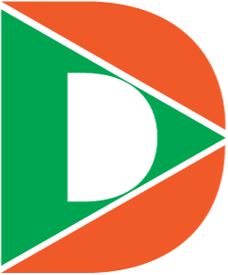Essential Guide: Navigating the Documents Required for Home Loan
Securing a home loan is a significant step towards homeownership. Understanding the documents required for home loan application processing is crucial amidst the excitement.
These documents are essential in the approval process and ensure a smooth journey towards acquiring your dream home. This guide aims to simplify the often daunting task of having all the documents required for home loan processing in order.
This piece breaks down the essential documents and their significance, empowering you with the knowledge to navigate this process effortlessly.
Understanding the Documents Required for Your Home Loan
1. Proof of Identity:
To initiate the application process smoothly, you must present reliable proof of identity. Accepted documents encompass your Aadhaar card, passport, driver’s licence, or government-issued ID.
These documents are a cornerstone in verifying your identity and fostering trust between you and the lender throughout the loan process.
2. Proof of Address:
Alongside proof of identity, furnishing documents validating your residential address is imperative.
Commonly accepted papers include utility bills (electricity, water, gas), rental agreements, voter IDs, or Aadhaar cards.
Ensuring the consistency of the address mentioned on these documents with the one provided in your loan application is essential to avoid discrepancies and streamline the approval process.
3. Income Proof:
Lenders need evidence of your income to evaluate your repayment capacity accurately, typically encompassing salary slips, Form 16, income tax returns (ITR), or employment letters for salaried individuals.
Providing comprehensive business financial statements, profit and loss statements, and tax returns is crucial for self-employed individuals. Guaranteeing the accuracy and consistency of these documents is paramount for a successful loan application and swift approval process.
4. Property Documents:
Compiling documents pertinent to the property you intend to purchase or mortgage is imperative in addition to personal documentation.
These may include the sale deed, property tax receipts, approved building plans, possession certificates, and a no-objection certificate (NOC) from relevant authorities.
Thoroughly reviewing these documents and seeking clarification from the seller or builder, if necessary, ensures a smooth transaction and mitigates potential complications.
5. Down Payment Proof:
If you contribute towards the property purchase with a down payment, substantiating the source of funds is essential, entailing bank statements displaying savings, investments, or proceeds from asset sales.
If the down payment is a gift from a family member, documenting the transaction with a gift deed may be necessary. Validating the legitimacy of the down payment source strengthens your loan application and facilitates the approval process.
6. Credit History Documentation:
In addition to proof of income and identity, lenders often require documentation related to your credit history, including your credit report from credit bureaus detailing your credit score and repayment history.
A healthy credit score indicates financial responsibility and increases your chances of loan approval. Ensure your credit report is accurate and up-to-date, as any discrepancies could affect your loan application.
By staying proactive and addressing any issues in your credit history, you can demonstrate reliability and strengthen your position as a borrower.
7. Additional Documentation for Self-Employed Individuals:
Individuals may need additional documentation to support their home loan application, including business registration documents, such as the Certificate of Incorporation or Partnership Deed, to validate the existence and legality of the business.
Income proof for self-employed individuals typically includes audited financial statements, balance sheets, and profit and loss statements.
Comprehensive documentation of your business finances demonstrates stability and reliability to the lender, increasing the likelihood of loan approval.
Conclusion
Navigating the documents required for your home loan can seem daunting, but it becomes more manageable with proper understanding and preparation.
By ensuring the completeness and accuracy of your paperwork, you can expedite the loan approval process and move closer to achieving your homeownership goals.
Remember to organise your documents systematically and seek assistance from your lender or financial advisor. With the right approach, you will be well-equipped to embark on this exciting journey towards owning your dream home.

As a DIGITALTECHSIDE author, the majority of our articles have been focused on technology, blogging, business, lifestyle, social media, web design and development, e-commerce, money, health, education, entertainment, SEO, travel, and sports.
Contact us at digitaltechside@gmail.com if you have questions of anything.




